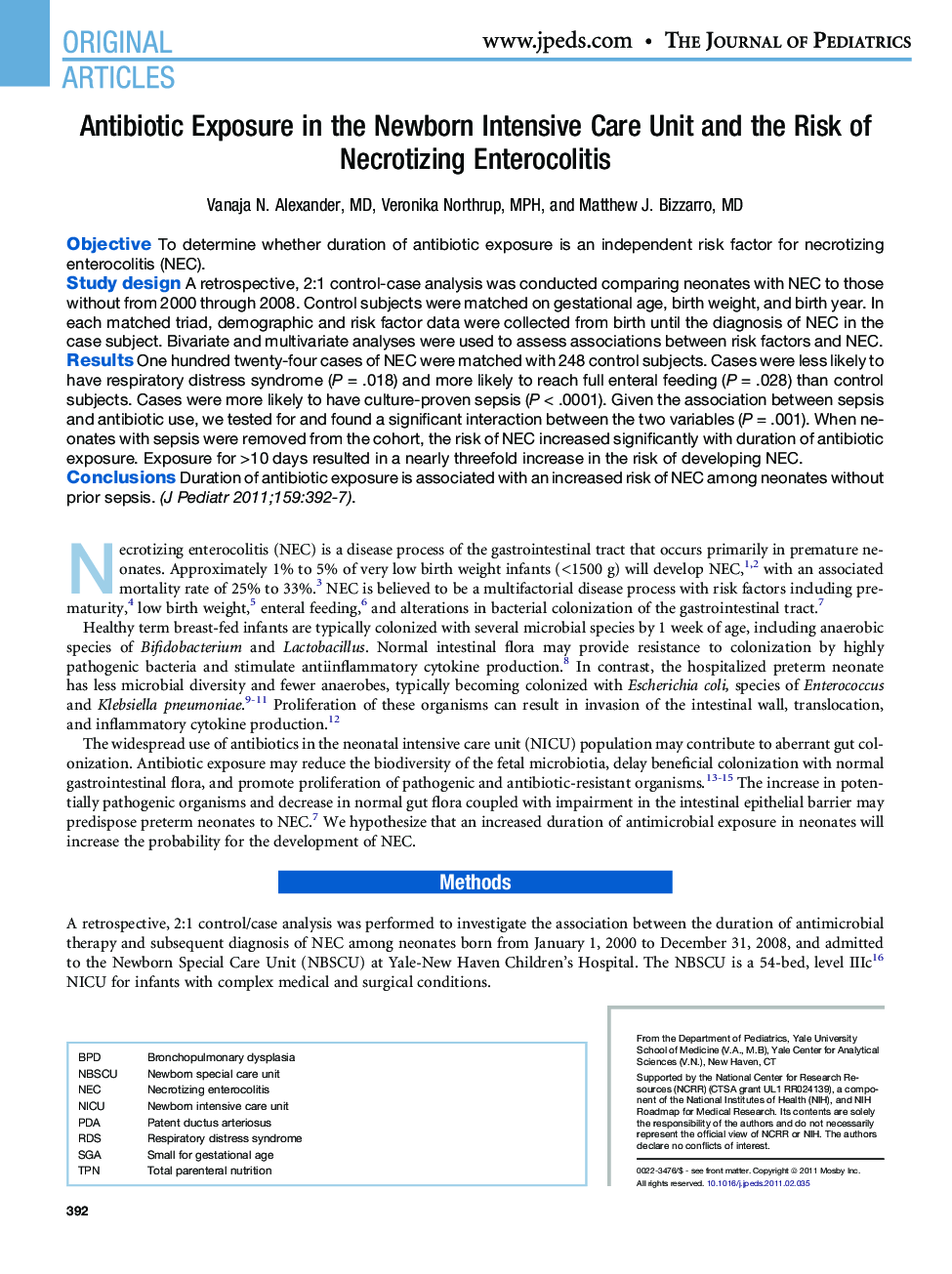| Article ID | Journal | Published Year | Pages | File Type |
|---|---|---|---|---|
| 4166001 | The Journal of Pediatrics | 2011 | 6 Pages |
ObjectiveTo determine whether duration of antibiotic exposure is an independent risk factor for necrotizing enterocolitis (NEC).Study designA retrospective, 2:1 control-case analysis was conducted comparing neonates with NEC to those without from 2000 through 2008. Control subjects were matched on gestational age, birth weight, and birth year. In each matched triad, demographic and risk factor data were collected from birth until the diagnosis of NEC in the case subject. Bivariate and multivariate analyses were used to assess associations between risk factors and NEC.ResultsOne hundred twenty-four cases of NEC were matched with 248 control subjects. Cases were less likely to have respiratory distress syndrome (P = .018) and more likely to reach full enteral feeding (P = .028) than control subjects. Cases were more likely to have culture-proven sepsis (P < .0001). Given the association between sepsis and antibiotic use, we tested for and found a significant interaction between the two variables (P = .001). When neonates with sepsis were removed from the cohort, the risk of NEC increased significantly with duration of antibiotic exposure. Exposure for >10 days resulted in a nearly threefold increase in the risk of developing NEC.ConclusionsDuration of antibiotic exposure is associated with an increased risk of NEC among neonates without prior sepsis.
